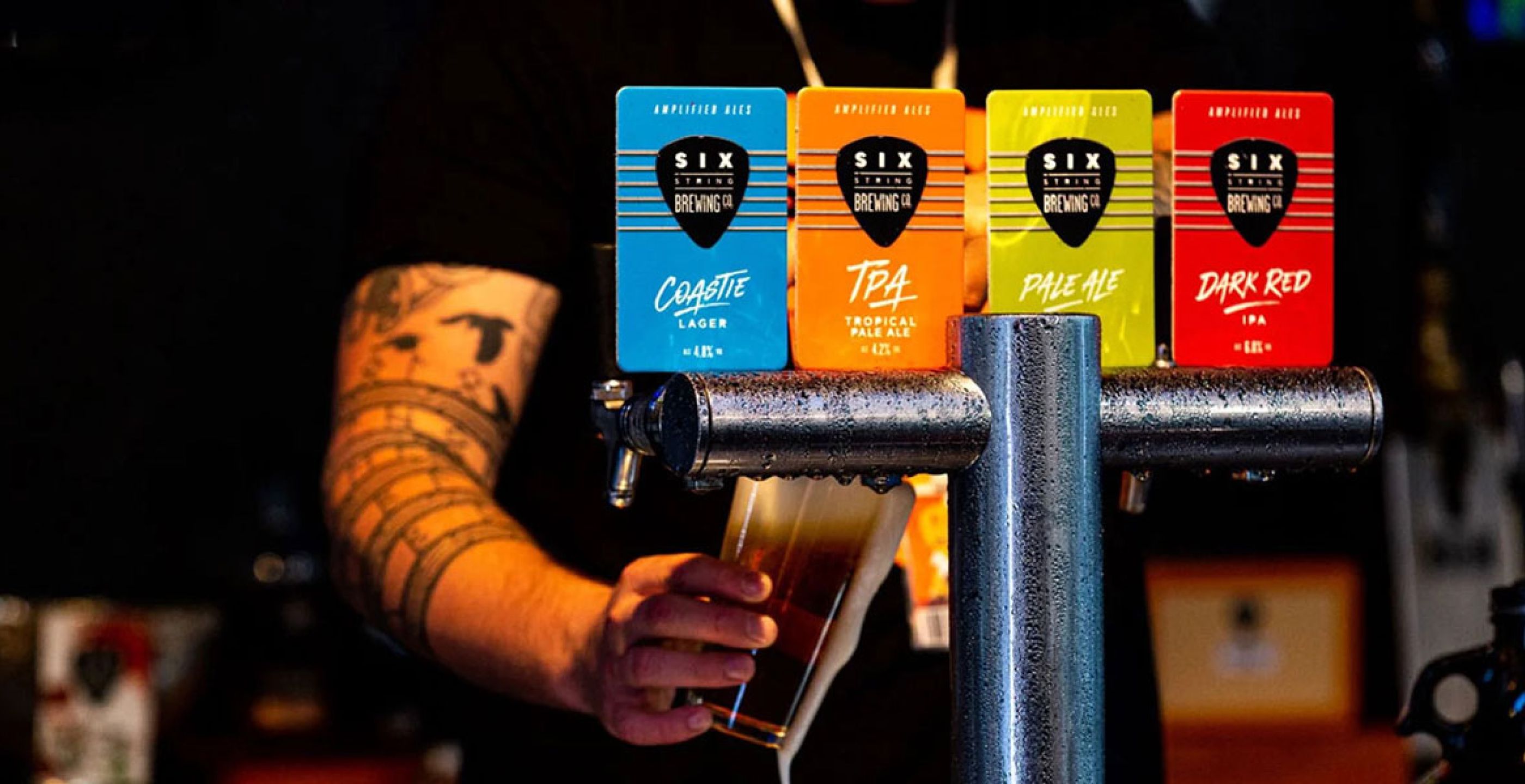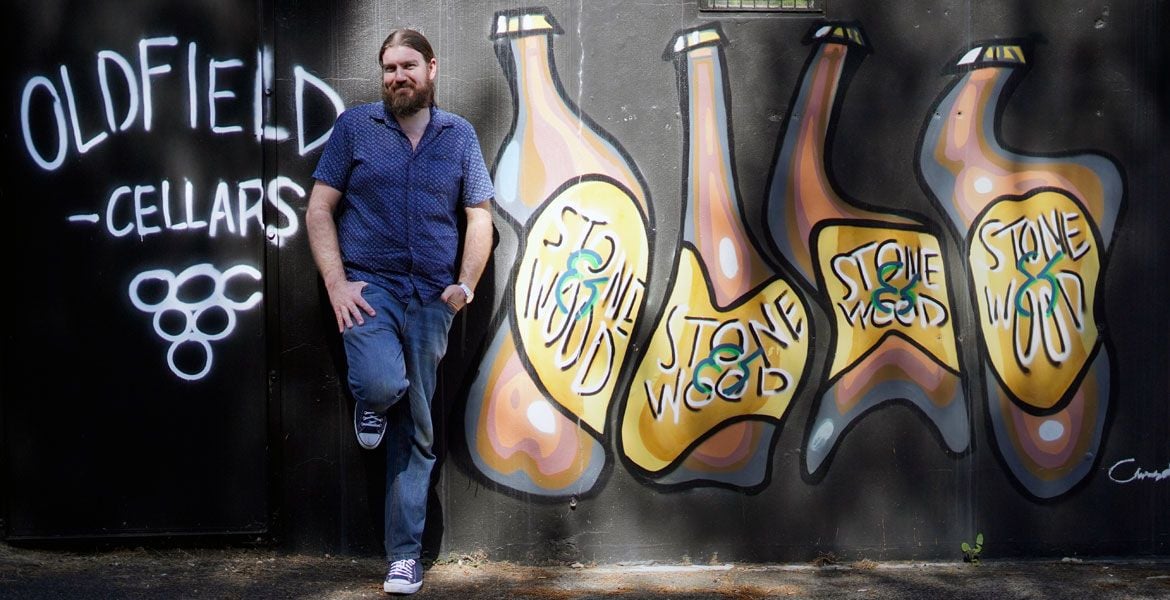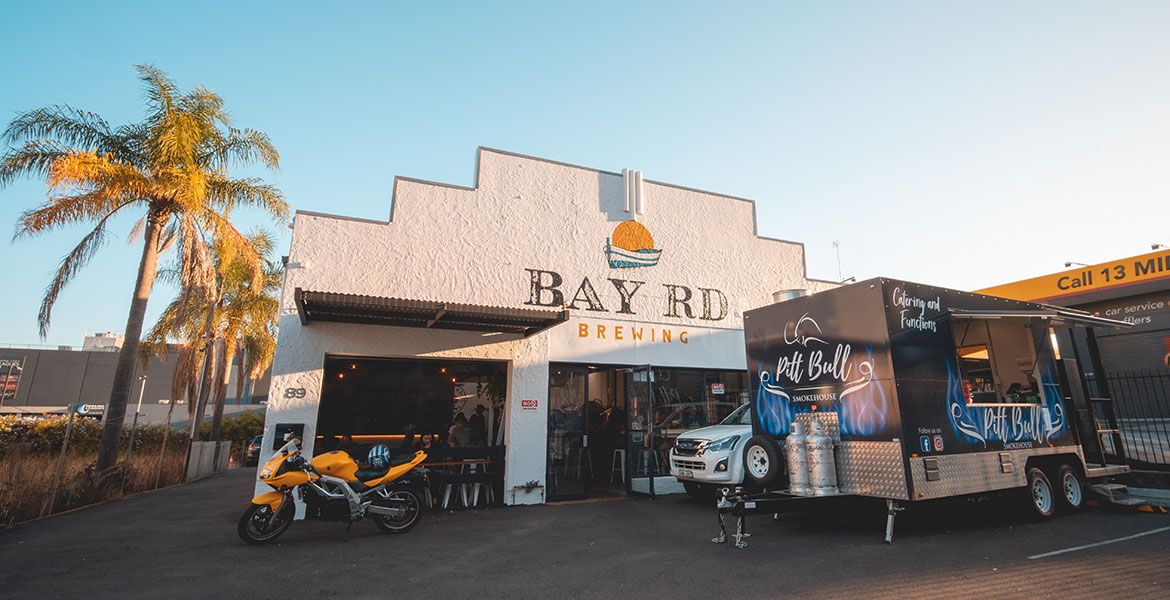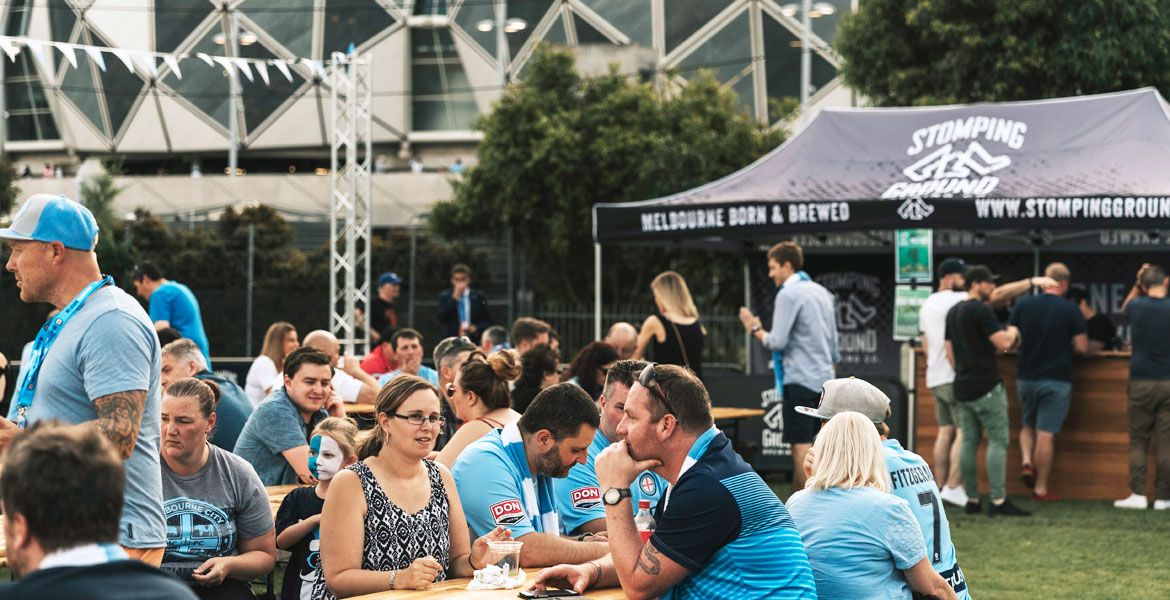If you're a small regional business looking to survive for the longterm, forging a connection with your local community seems like a good place to start. It's an approach that's been part of Six String ever since they poured their first beers for the people of Erina and its surrounds.
The Central Coast brewpub has always been more than a great local watering hole: it's a space that showcases up-and-coming bands and community groups, while the brewery can often be found sponsoring events throughout the region.
Sharon Benson, who runs the brewery with husband Chris, says they've always sought to keep their locals happy, even if that created challenges in the early days.
"Being regional had its downside at the start," she admits. "People hadn't really come across craft beer, so it took a while for people to come around.
"But even Newcastle had no brewery when we opened, so a lot of people saw us as their local, so we had that broader area as well. There are now lots of loyal followers in the area, especially on the Coast."
They first opened their doors to the public in 2013 following an arduous multi-year process for Chris and co-founder Adam Klasterka as they tried to get their dream through the council. A couple of years after they reached that point, Adam made the decision to move on. And although the local boy still likes to check in, it means that for much of the brewery's history Chris and Sharon have been at the helm.
Over their first decade in operation, the number of breweries on the Central Coast has grown, a situation that means people don't just get craft beer now but actively seek it out when visiting the popular tourist region.
"Having local breweries does draw people to the coast," Sharon says. "They’re not just coming to see us but to drive around and have a look. We have Bay Road Brewing and Block 'N' Tackle within close driving distance of us and we’re always sending people to each other, so, in that sense, it works.”
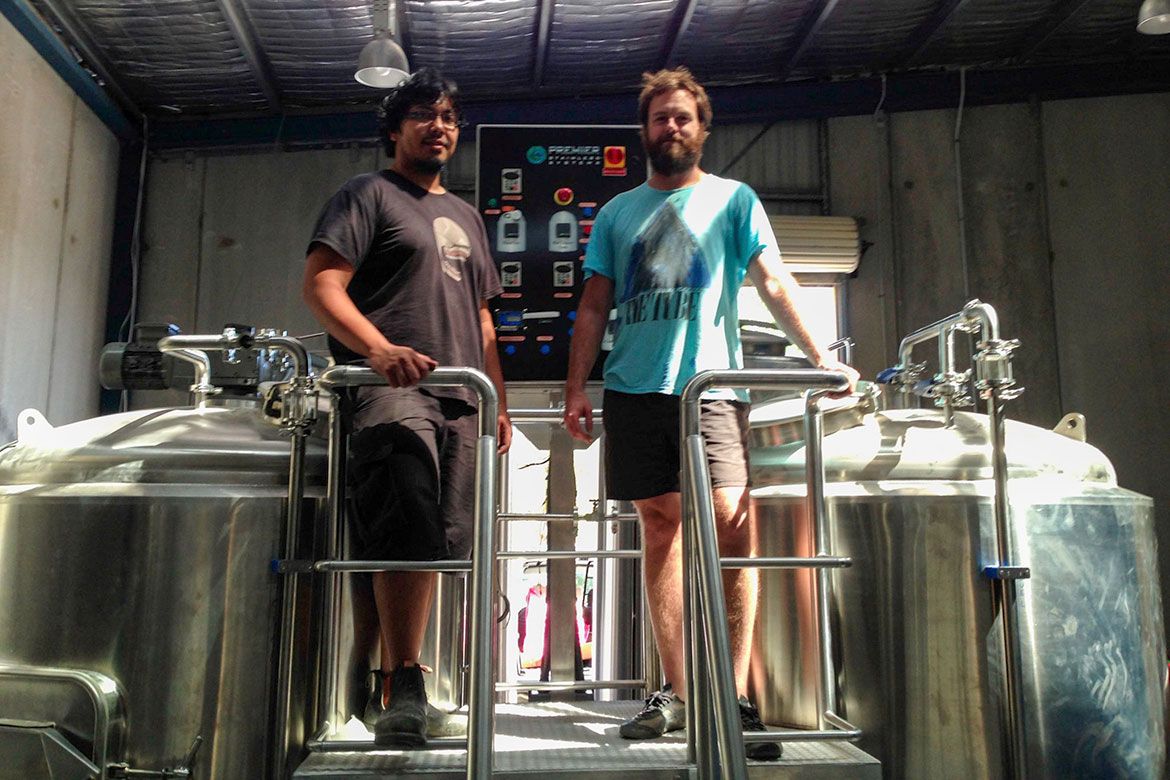
Often, there's a good chance visitors to Six String are seeking out the brewery's popular Dark Red IPA; it was an uncommon style to include in a core range when it debuted a decade ago and remains a year-round rarity today. When asked about the beer's enduring success, Chris thinks it lies in its approachability, something of which they were very cognisant when building the brewery.
"We realise that, for people local to us, that beer is what they see Six String as," he says. "It hasn’t really changed: it’s an approachable red and it’s a great beer. We also play on it a lot, with a double, triple and quadruple."
Although the local community has always been at the heart of the operation, there's another distinct but connected circle that Six String have always embraced: live music. The Six String name comes from Chris' background playing a six string bass, and the brewery frequently welcomes bands of all styles and sounds through their door, while also rocking up to pour beers at gigs and festivals.
It makes their connection with live music an essential constant in the Six String story, helping guide them when making decisions, while also bringing another benefit.
“We’ve got a path to follow and it gives us that direction," Chris says. "It also gives us a good workforce: we attract a lot of musicians into our staff.”
On the back of their ten year celebrations, we invited Chris and Sharon to take part of our Ten Lessons In Ten Years series. In doing so, they also let us in on what's around the corner for the brewery as they look to the future.
Chris & Sharon Benson
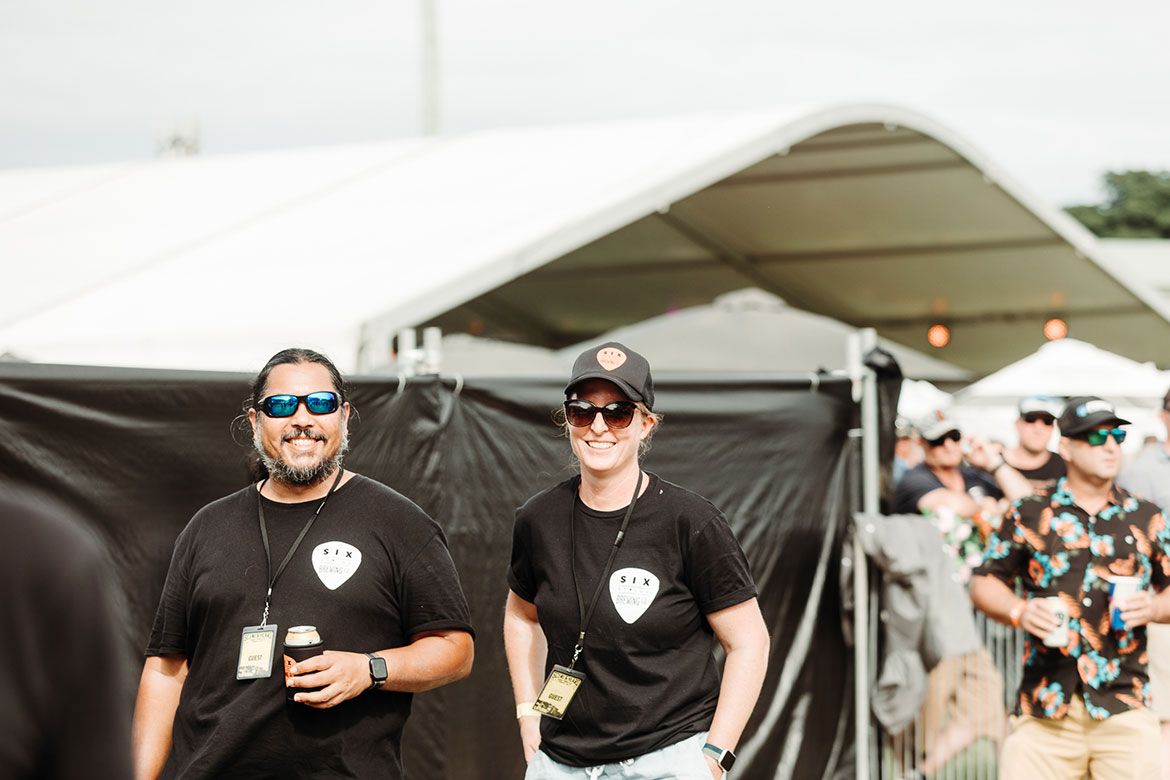
1. Ten years goes quick!
After ten years you would think we’d have this whole brewery thing down pat but we still feel like we are running to catch up with ourselves. When we first decided we were going to open a brewery we had no idea the rollercoaster that was ahead. Our kids have gone from babies to starting high school and our problem child – Six String – has grown up too, going from a spark of an idea to an uncontrollable beast that is on its own path.
2. Capitalise on what you know
With an industry that grown so fast, it’s been challenging to keep ahead and sometimes it’s easy to get caught up in trends. We love pushing the boundaries with our beers but have also learnt – sometimes the hard way – where our strengths are.
Dark Red IPA was our very first brew; it was pretty unique at the time and while red IPAs are now fairly commonplace we still proudly stand behind this as a flagship brew. We got a little too excited about our GABS beer (the Quadruple Dark Red IPA) and went a little over the top with red IPAs in 2022, brewing the Double, Triple and Quad all together, so at this point in time we never want to see a Red again!
Having said that, everyone obviously enjoyed the ride because there was a heck of a lot of ABVs being consumed in the last 12 months. With an AIBA Champion Lager (Coastie Lager) and an Indies Champion Pale Ale (Tropical Pale Ale) over the last few years as well, we must be doing a few things right – not just on the red front.
3. Have a plan and don’t go too hard too fast
Ninety-nine percent of the time, things don’t always go as planned, and often it’s the best-made plans that turn to shit! But it’s so easy to get caught up in opportunities thrown at you and, without the infrastructure and processes in place, going too hard too fast catches up with you.
Reading back over our original business plan, you won’t find anything about packaging. Canning our beers has definitely opened up opportunities and having our own canning line kept us going through lockdowns, but there is so much more to running a business than just putting beer in a can and it took a long time for these processes to catch up and be running smoothly.
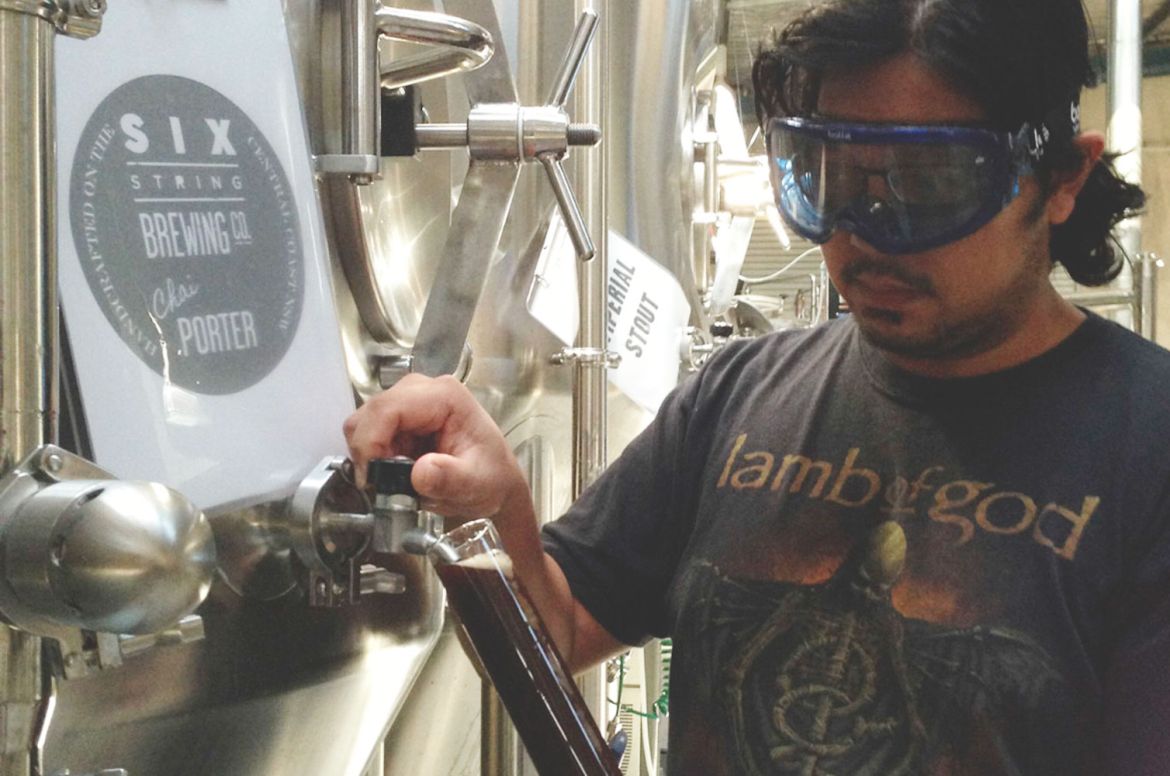
4. Keep your locals happy
Being regional has its challenges and benefits and, having grown up on the Coast, we wanted to be able to bring this venture to our home turf. The problem was that the precedence for what the Central Coast council had for what a brewery was was Blue Tongue and its massive production facility. Changing perceptions took time and thinking back to the hurdles we had to jump through some of it was so over the top.
Selling the idea of the local brewery also took some convincing for Central Coast locals. The craft industry in NSW hadn’t taken off, especially outside of Sydney, so shifting people’s opinions on what’s this “craft crap” took time. Early on, we decided to meet people halfway with our Coastie Lager. Still full-flavoured and still good beer but not a giant leap from a Tooheys New to a Red IPA.
We’ve worked really hard just being "everywhere", being involved in local community events and just getting beers into people’s hands. Now there is so much choice for people in terms of good beer out there, but having done the groundwork there are many on the Coast that still consider us their first intro to craft and now their go-to beer.
Having this local following absolutely has kept us going for ten years, particularly the last few, and Coastie continues to be one of our biggest-selling beers.
5. Having the right staff and people behind you can be make or break
For any small business, it’s tough to find the balance between experience and the right fit culturally. Being regional makes it even tougher as there is a smaller pool of experience to draw on, but when you find the right fit you know it. Knowing how the business runs upside-down and back-to-front means that you can find the right fit and provide the training and skills to get them up to speed.
We have had staff go from 18-year-old casuals at the bar to warehousing to brewing or sales to brewing. Everyone wants to be a bloody brewer!
6. The story is important
Brewing good beer isn’t enough. Letting people know our core values: that we are a family-run, Central Coast born and bred business that is 100 percent locally owned is important. We are not public people: Chris hates the spotlight and attention, but our story and what our core values are makes a difference in whether people choose your beer or another.
Lockdowns and a tough few years with fires, floods and the cost of living going up have highlighted the direct impact buying local can have.
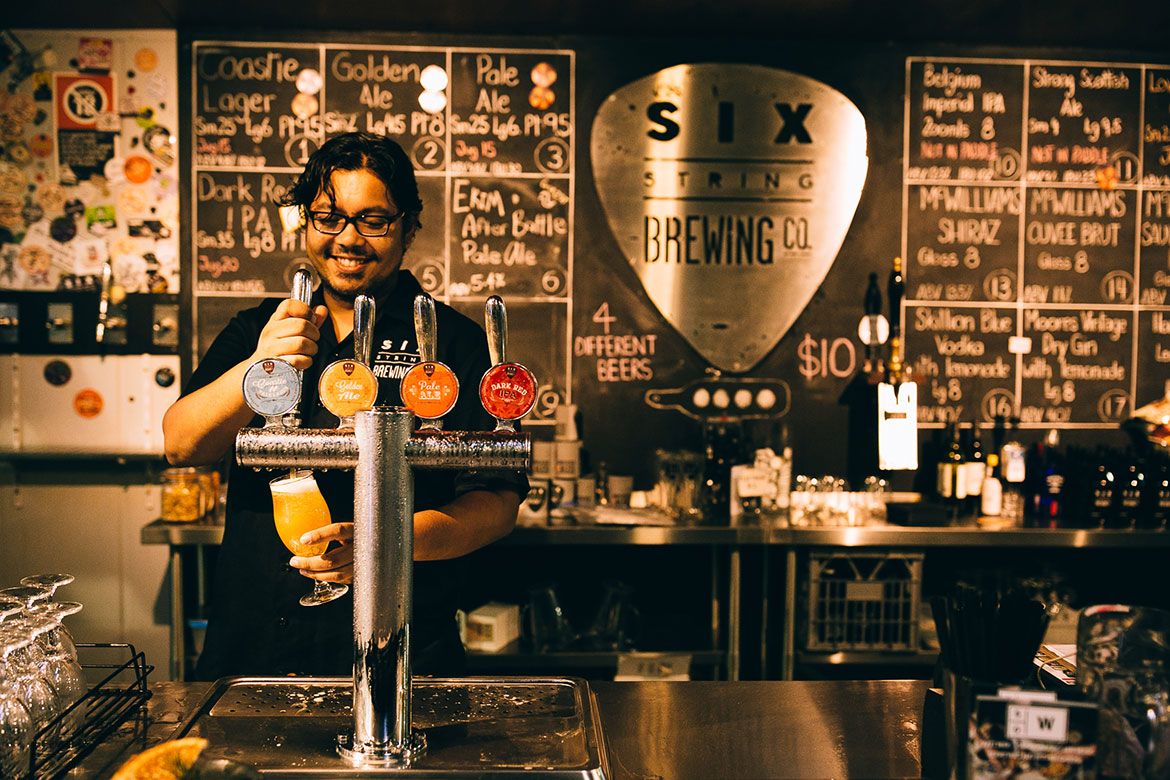
7. Collaborate locally
So many opportunities have come from collaborating with our neighbours; two of our fastest-selling limited edition brews were local collaborations. Mr Black Coffee Milk Stout with local distillers Mr Black and our collaboration brew with the North Sydney Bears both went absolutely mental.
The Central Coast has also become a bit of a hub for producers and manufactures and The Central Coast Makers Trail, which is a growing collaboration, has everything from oysters and pearl farmers to chocolate, wine and breweries.
Working with others only creates more reasons for people to visit benefiting everyone along the way.
8. Don’t put all your beers in one basket. Diversify and be adaptable
Changes in the industry, wet summers, bushfires, COVID lockdowns – they’ve all taught us all to be adaptable. When things change overnight you kinda have to be! For us, having a few different revenue streams, not just selling beer, but through tourism, events, the brewery taproom and restaurant, and contract brews has meant that if one thing is falling short, events aren’t happening, or a changing market means wholesale sales are down, there are other things to fall back on.
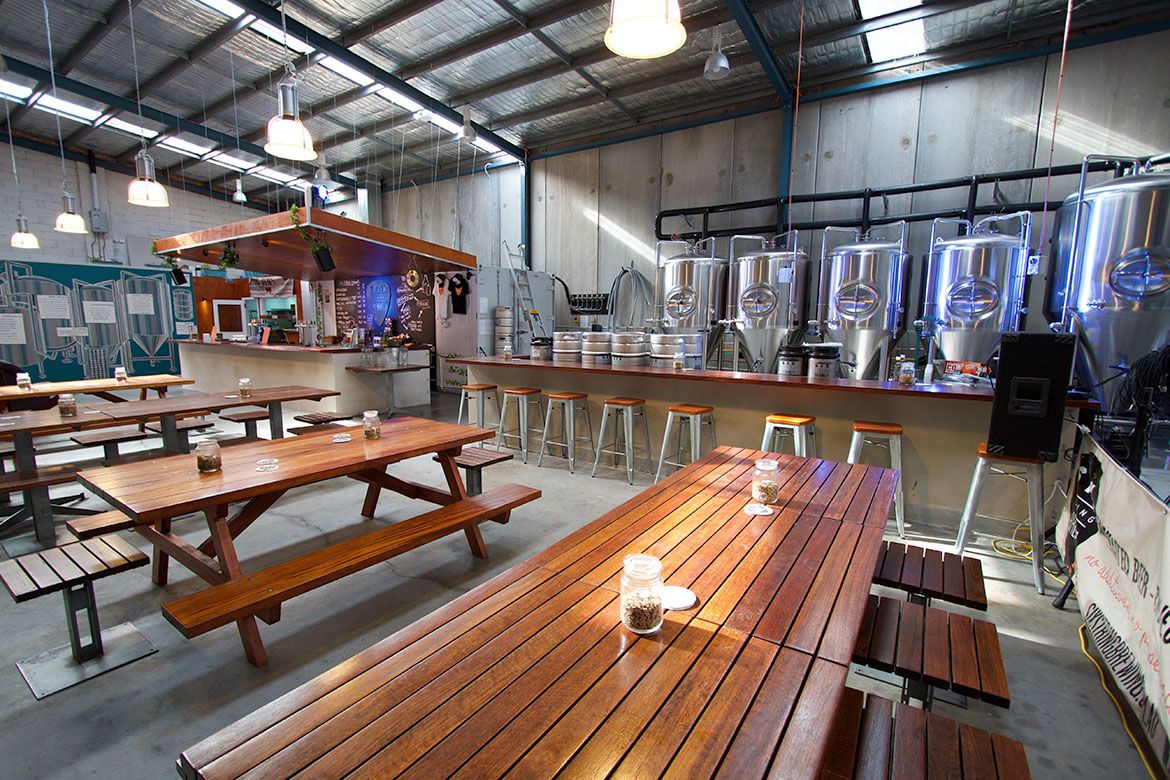
9. Align with what you know and love
For us "good beer and good music" has always been our driving force. Music festivals, sponsoring bands and gigs, promoting local music … it comes with the name, but surprisingly Chris’ love of barbecue and smoked meats has opened up opportunities for us with promotion and events.
Plus aligning with what we love has the added benefit that you get to do epic things like stand at the side of stage for Grinspoon at Scene n Heard or get a corporate box for the Red Hot Chili Peppers. It makes the rollercoaster ride that much more endurable.
10. You don’t know what will happen unless you give it a go
The risks in owning and operating a brewery are massive, especially when the stakeholders are just you. As a family-owned business, we are putting a lot on the line. There have been moments when we have wanted to pull the plug but we have had some amazing opportunities in the last ten years, not only in getting our beers in the hands of more people than we could ever have imagined but also doing community and music events – and we have grown faster than what we could plan for.
We are so excited for the next chapter of Six String to start. We have absolutely been bulging at the seams for the last few years and are at absolute capacity where we are. In 2023, Six String will be relocating to a new venue, just up the road, with a greater brewing, seating, and storage capacity. The building is about to go ahead and, all going to plan, you should be able to visit us by October.
Ten years on, and we are only really just getting started and cannot wait to jump into the next ten.
You can read previous entries in our Ten Lessons From Ten Years series here.



